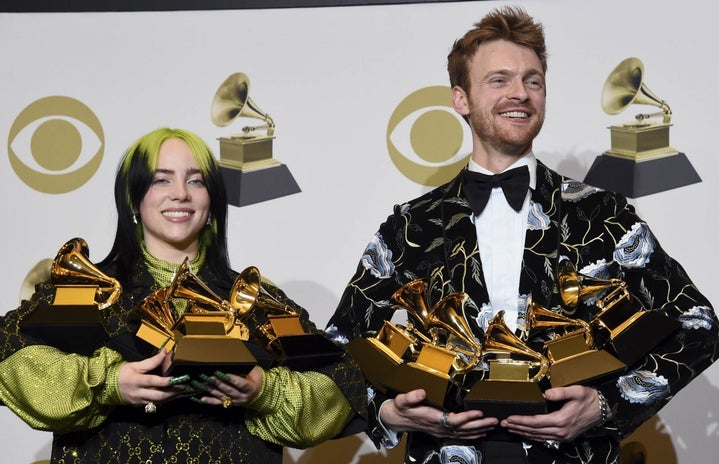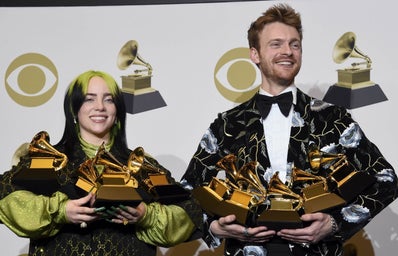The Grammys is one of the biggest nights of the year for anyone in the music business, but this year’s ceremony was far from the spotlight: instead, allegations of corruption and institutional sexism within The Recording Academy (the institution which oversees the awards) overshadowed the flamboyant affair.
The Academy has come under fire for years, with countless people having publicly criticised their reluctance to modernise their ideals regarding changing consumptions habits (e.g. streaming, music sharing) and more important issues such as race and sex. Although he has won 21 Grammys in total, Kanye West has never triumphed in any of the major categories: My Beautiful Dark Twisted Fantasy (2010) failed to even make the nomination list and Graduation (2007) fell at the final hurdle, despite their huge success. Bruno Mars is the only non-white artist to have won album of the year in the past ten years or so, with results in other non-genre specific categories not being much more inclusive. Women have previously faced a similar lack of representation, as well as obvious bias towards male performers for the televised show, with the likes of Lorde (who that year was the only female nominee for album of the year) and Ariana Grande missing out on the chance to perform – although Ariana got her well-deserved performance slot in this year’s show. A journalist for the New York Times has previously suggested that breakthrough albums by young women such as The Miseducation (Lauryn Hill), Come Away With Me (Norah Jones) and 21 (Adele) – and now potentially Billie Eilish too – only achieved their success at the Grammys because of a half-arsed [my words, not his] attempt to seem more inclusive, not only perpetuating the idea that the Academy’s selection and voting processes are rigged but also merely disguising the sexism inherent to the institution’s values rather than tackling – or even caring about – the issue itself.
Women did relatively well at this year’s Grammys, with Billie Eilish being the first person to win all four of the major awards since 1981 and 19-year-old Jamaican singer Koffee being the first woman ever to win Best Reggae Album. Nonetheless, female artists are consistently underrepresented at awards ceremonies and big bosses – not only of The Recording Academy but other awards bodies too, e.g. the Brits, who have also come under scrutiny for lack of female nominees this year – claim it is due to a disparity between male and female artists in the industry. According to research by Vick Bain, only 19.69% of artists signed to UK record labels are female, something which many believe is due to an unwillingness on the part of male label owners/record producers to sign, nurture, and promote female artists, instead preserving their efforts and opportunities for male artists. The institutional sexism of the music industry translates on a bigger scale in the case of The Recording Academy, whose previous CEO Neil Portnow claimed that female artists just needed to “step up” if they wanted to create music worthy of winning a Grammy. The inequality doesn’t just stop with the artists, though: the current CEO of The Recording Academy, Deborah Dugan, was appointed in a bid to get an organisation on the brink of a meltdown back on track and into the 21st century but after only five months she has been suspended. Though the official reason for her suspension is an accusation of bullying made by a colleague, it seems all too convenient that it comes shortly after she made her concerns that “something was seriously amiss at the Academy” known to the board of trustees. Her concerns included irregularities in the nomination and voting process; questionable payments to lawyers and the like; conflicts of interest among board members, with some being inclined to biased decisions (potentially done on purpose); sizeable bonuses for Portnow, granted despite there being a rape allegation made against him by a female artist (the allegation was denied); and finally, in that vein, recurring incidents of sexual harassment by other senior (i.e. male) members of staff. Almost unsurprisingly, Dugan – who is the Academy’s first female CEO – is paid considerably less than her two male predecessors were.
Dugan’s suspension – especially if made permanent – only reveals how ambitious her original task of reforming the Academy’s broken system truly is. When any attempt to acknowledge and correct wrongdoing within the organisation is shut down by its inherently sexist, racist and corrupt members, how will any progress be made? Although some people have spoken out in support of her, the lack of public outrage over something so serious is astounding. This may not be entirely coincidental, though: it is likely that everyone in the industry knows someone who benefits from the current corrupt system and so might be hopeful that they will one day benefit from it too, so long as they keep quiet. Or perhaps the Academy’s mentality of being stuck in the past and unconcerned with modernisation and inclusivity in now just accepted, considered the norm. New generations of artists, new styles of music, and anyone who doesn’t fit the industry’s ideals arrive into a system that is already pitted against them, and those in power either can’t, don’t know how to, or don’t want to change it.
Dua Lipa acknowledged the widespread issues within the industry, using her speech to champion gender diversity in a field still dominated by men: “There are so many stellar female producers, artists, songwriters [and] engineers… If you’re in the business and you’re hiring, raise your sights to the amazing, talented women out there because we deserve a seat at every table.” Couldn’t have said it better myself.



